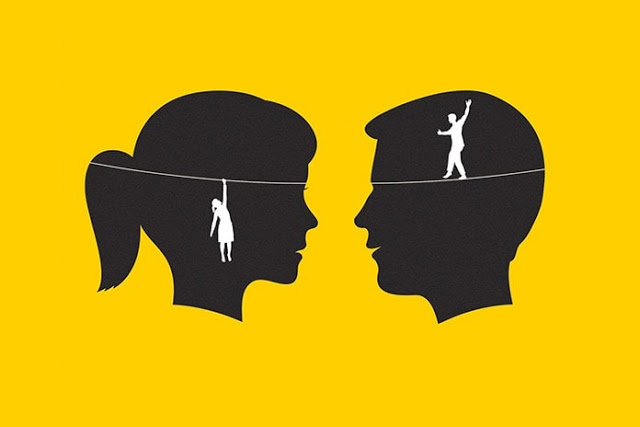by Fionola Meredith
I never used to miss an International Women’s Day march. Too much was at stake not to attend: our atrocious lack of reproductive rights, sexual discrimination, the hidden epidemic of domestic violence and many other vital issues.
It was important to stand up and be counted, to march alongside other feminists in support of our shared goals, to bang drums, wave placards, making a blaze of colour and noise in the street.
This was also the time to celebrate the tremendous gains of the women’s movement, the freedoms we had won, together with a powerful sense of political and personal agency that had been denied to previous generations. It was fun, exhilarating, and it seemed like there was nothing in the world that we couldn’t do, if we stuck together.
I even brought my Dalmatian on the IWD marches, proudly wearing a rosette in the suffragette colours of purple, white and green. But then the dog started ripping the rosette off his collar and chewing up the ribbons. And I started wondering where contemporary feminism was going, and whether I could be part of it any more.
***
I haven’t changed. I am still as passionately angry as ever about women being denied abortions, or treated like a piece of meat by lecherous bosses, or beaten up in their homes by husbands who claimed to adore them.
But over the past few years mainstream feminism seems to have turned inward instead of outward. The rhetoric is too often concerned with what women can’t do as opposed to what they can.
Feminism, like other forms of identity politics, has become obsessed with victimhood, in what I consider a seriously disempowering way. It has begun to feel like a religion, with its own strict rules about what women are permitted to say, do and think.
For me being a feminist has always meant supporting women’s freedom to be whoever they want to be, regardless of whether anyone else approves or not. That’s why I’m uncomfortable with the “grid girls” of Formula 1 being fired.
Motor sport, with its ludicrously macho swagger, basks in the borrowed glow of politically correct virtue. Meanwhile a bunch of women are out of a job. Who benefits? Has anything actually changed?
Dare to defy the code and the consequences will be severe. Take the MeToo campaign. It has been a necessary, fiery counterblast against privileged, complacent men who abused their positions of influence.
But when women like Catherine Deneuve and Margaret Atwood expressed concerns about the more radical, puritanical aspects of the campaign they were reviled as traitors – mentally deranged rape enablers who were suffering from “interiorised misogyny”, like the misguided fools who voted for Trump.
There is no shortage of victims, of course. Yet to define a movement by the undeniable wounds that women have suffered, and will continue to suffer, strips them of their agency. It cuts them down, renders them weak and dependent, like little children, when it should be building them up, like the independent, competent and resilient adults that most of them are.
***
I have come to understand that identity politics, taken to its extremes, is essentially divisive. The emphasis is on difference – what separates us from one another, not what unites us.
In the highly competitive race for ultimate victimhood, contemporary feminism is already fractured along lines of class, race, sexual orientation, disability and more. Everyone is shouting from their own ever-shrinking islands, so obsessed with the particular form of oppression they experience that they can’t hear anything but the sound of their own voices.
The big problem for feminism is that if you focus endlessly on what divides women, then sooner or later you don’t have a movement any more, just a random collection of competing grievances.
Whatever your objective, the only way to achieve political and social change is through finding common ground, building common purpose. That’s not to deny differences between people, or to crush dissent. Debate, when unaccompanied by vicious mud-slinging, is both healthy and necessary.
If we call ourselves feminists we need to remember that we are in this together. Facing the future, we must build alliances, not fences. That’s why I have decided to go back and take part in the International Women’s Day march today.
But I think I’ll leave the dog at home. I want my suffragette colours to remain intact.
***
This piece by writer and broadcaster Fionola Meredith first appeared on The Irish Times.



